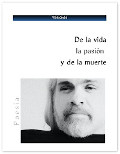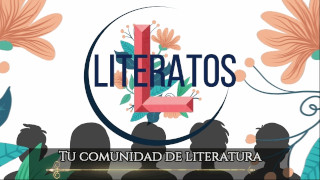
Cuando se han agotado...
Cuando se han agotado las causas del amor
y solo un compromiso mantiene aún los lazos,
las noches traen consigo sentimientos extraños
que al lecho conyugal le cambian la noción.
Cuando el cansancio llega a imponerse entre dos
que solían entregarse en sensuales abrazos,
que siempre conducían al sexualísimo acto,
el hábito hace tretas que incitan conjunción.
Pero es rutina simple, puro anhelo carnal,
autosatisfacción realizada en pareja,
sin sueños ni esperanzas, sin pasión de verdad.
Y hay entrega de cuerpos, sin apego mental.
Y cuando el fuego amaina, estando en plena senda,
se reavivan las llamas pensando en alguien más.

When they have been exhausted...
When the causes of love have been exhausted
and only a commitment still maintains the bonds,
the nights bring with them strange feelings
that change the notion of the conjugal bed.
When the fatigue comes to impose itself between two
who used to give themselves in sensual embraces,
that always led to the most sexual act,
the habit makes tricks that incite conjunction.
But it is a simple routine, pure carnal longing,
self-satisfaction realized as a couple,
without dreams or hopes, without real passion.
And there is surrender of bodies, without mental attachment.
And when the fire subsides, being in the middle of the path,
the flames are rekindled by thinking of someone else.

Por alguna extraña razón, siempre he tenido una tendencia casi obsesiva a las rimas perfectas, a la rima consonante. Aunque he sabido disfrutar las imperfectas, solo he sabido cultivar las primeras. Sin duda que esto es todo un reto, pues la segunda presenta mayor facilidad, pero pienso que aprender a cultivar la segunda puede abrir más campo a la facilidad del lenguaje.
Es decir, creo que desarrollando la habilidad en el uso de la rima asonante, seré capaz de encontrar mensajes o vocablos más expresivos para mi poesía. Así que como ejercicio adicional, en este reto que me he hecho de los sonetos con versos alejandrinos, hoy decidí romper mis moldes e irme, expresamente por el lado de las rimas asonantes.
Una vez más dejo constancia de que la inclusión de la traducción al inglés solo busca facilitar la comprensión a quienes aman la literatura en español.
For some strange reason, I have always had an almost obsessive tendency to perfect rhymes, to consonant rhyme. Although I have enjoyed the imperfect ones, I have only been able to cultivate the former. Undoubtedly, this is a challenge, since the latter is easier, but I think that learning to cultivate that second one can open more room for the expressiveness of the language.
That is, I believe that by developing the ability to use assonant rhyme, I will be able to find more expressive messages or words for my poetry. So as an additional exercise, in this challenge I have made for myself of sonnets with alexandrine verses, today I decided to break my molds and go, expressly on the side of assonant rhymes.
Once again, I wish to state for the record that the inclusion of the English translation only seeks to facilitate the understanding of those who love literature in Spanish.


Descarga el poemario de @Ylich"De la vida, la pasión y de la muerte"¡Haz clic aquí! |  |
|---|

If you don't have an account at Hive yet, I invite you to read my post My Hive Testimony || Mi testimonio Hive
Si aún no tienes cuenta en Hive te invito a leer mi publicación My Hive Testimony || Mi testimonio Hive






